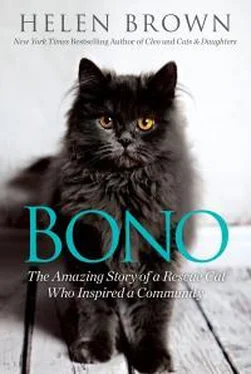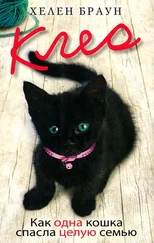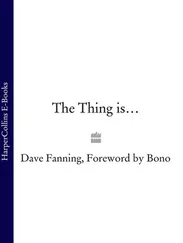I took a swig of wine and said Monday would be fine. Michaela’s face lit up like Times Square. She said she’d visit as soon as the cat had settled in.
Back in our hotel room two hours later, I was so tired I brushed my teeth with face cream.
When I was finally tucked into bed, I thought of Vida toasting our future foster cat. The only way I could survive the insane plan would be with a low maintenance animal.
Greg was always telling me about the power of visualization. Closing my eyes, I conjured up an image of a hefty tortoiseshell. A sedate female with a name like Mavis, my foster cat would have been recently orphaned after 18 years with her widowed librarian owner. Mavis’s interest in human contact would be limited to watching me spoon fish flakes onto a saucer. She would pass her days dozing on a window ledge while Lydia and I went on shopping safari in Saks Fifth Avenue. Unlike Jonah, Mavis would hardly notice when we arrived home, on account of deafness. She’d acknowledge our presence with an offhand flick of her tail. Mavis wouldn’t be unfriendly or destructive, just healthy, quiet, clean, and sane. I slipped into a milky bowl of Mavis dreams.
Chapter Six
SEX, DRUGS, AND JUNK FOOD
Palace or drain—a cat can live anywhere.
Aroar of industrial strength drilling jolted me awake. I sprang out of bed and pulled the curtains open. Lydia was quickly at my side. It was dark outside, but across the street an insomniac demolition crew was already at work. With our walls and windows vibrating, trying to get back to sleep was pointless. Besides, I wanted to introduce Lydia to her first diner.
“You want what ?!” the world-weary waitress shouted.
“Two lattes, please.”
She shoved her pencil in her pocket and slouched back to the kitchen. A pasty-face waiter trudged toward us and asked us to repeat our order.
“We don’t do no lattes,” he said.
“How about cappuccinos?”
Exasperated, he threw up his hands.
“No fancy espresso machine here, lady!”
The waitress returned to fill our cups with fluid that could have been diverted from a nearby drain.
“Don’t worry,” I said to Lydia. “This stuff will taste like nectar after we’ve been here a few days.”
Lydia smiled down at her pancakes spread like a pair of tropical islands over her plate. She trickled a swirl of maple syrup over the top. I was momentarily embarrassed when my mountain of scrambled eggs and grilled potatoes arrived gasping for breath under a pile of bright pink bacon. A quick glance at other tables assured me the waitress hadn’t put the kitchen on giantess alert. The man next to us was working through three porterhouse steaks and an Everest of french fries.
We sluiced down glasses of neon orange juice with iced water. No matter how frigid the weather, every self-respecting diner serves water clinking with ice cubes.
The waitress slapped a couple of plates of buttered toast on the table in case we were still feeling peckish. I could tell Lydia was beginning to warm to New York.
“Is this normal ?” she whispered across the table.
“Totally.”
“How come I’ve seen so many skinny people?”
“There’s room for every quirk in this town,” I said. “If we had a thing for collecting Icelandic moose dung, there’d be at least twenty other people on Manhattan with the same obsession.”
“You mean there’s a moose dung society?”
“Probably. Heaps of people go to downtown diners, but on the Upper East Side thousands survive on nothing but air and quinoa.”
Lydia hadn’t touched her second pancake. I couldn’t look at my potatoes. We shoved the plates aside and headed out into the street.
In my best Sex and the City imitation, I raised an arm, but the cabs buzzed past like hornets on a mission. The mature woman’s invisibility cloak at work again. After about twenty minutes, Lydia spotted a cab with its light on. She raised her arm and lunged forward, leaving the driver a choice of running her over and spending months in court, or hitting the brakes and letting us climb in.
Sitting in the backseat, keys safely tucked in my pocket, I squeezed her hand as we swerved past Central Park toward our new home. She was proving herself a natural New Yorker. Locals talk down the fact they live in a mega metropolis. They say it’s just a string of villages called neighborhoods. Everyone raves about their neighborhood. I couldn’t wait to see ours. With it being so close to the UN, I imagined it awash with Daniel Craig lookalikes carrying poison dart umbrellas.
When the cab pulled up outside a world-worn pizza joint near the corner of East 44th Street, I was taken aback. The one-way thoroughfare that carved a short, businesslike line from the East River wasn’t quite the blossom-lined boulevard I’d pictured.
We dumped our bags on the sidewalk. A North African man wearing an ankle-length caftan and traditional cap was selling handbags from a stand near the corner. When we approached and asked directions, he pointed at a modest redbrick building sandwiched between two tall gray ones. Roughly six stories high and close to a century old, it gazed onto the street through unadorned windows, like an old lady who couldn’t remember how she’d ended up in such frenetic surroundings.
A set of worn, narrow steps ran up to a front door painted a raucous scarlet. I climbed the steps, fumbled for the keys in my handbag, and issued a silent prayer to the God of Airbnb. (Even if Ted doesn’t exist and this whole thing is a scam, please let us in and give us a roof over our heads tonight.)
Though the brass lock was scratched, it was shaped like a heart. It was the building’s way of telling us that no matter how tired it looked from the outside, it still had soul. When the key turned smoothly and the door glided open, I felt weak with gratitude.
The front door creaked open to reveal a tiny hallway leading to a flight of steep, paint-spattered stairs. Dust particles drifted in beams of watery light. A background odor implied things had been living and dying between these walls for a very long time.
Our apartment was on the fourth floor, meaning we’d have to climb “only” three sets of stairs, which I’d decided would be kill-or-cure therapy for my knee. The first challenge was going to be getting my coffin-sized suitcase up to our eyrie. Lydia offered to help haul my luggage up, but I didn’t want her thinking she’d been invited along as a geriatric nurse. The suitcase was outrageously heavy. After two flights of stairs, my lungs were stinging. I paused to catch my breath while pretending to admire the doors arranged in a horseshoe around the stairwell. They were all shades of dark brown and firmly shut, as if whoever lived behind them had no intention of letting the world in. Meanwhile, the ambient aroma had intensified to eau de rotting vegetables mixed with blue cheese and unwashed feet.
I beckoned to Lydia to go ahead and, once I’d decided the danger of heart attack had subsided, heaved the suitcase up the final set of stairs.
“I think this is it,” she said, her face overcast with confusion.
The stench, which was now overpowering, was emanating from the partially opened door in front of her. A cacophony of banging and clattering was coming from inside. The apartment— our apartment—was occupied by an incontinent poltergeist.
“Hellooo?” I called in the tentative tone my aunt used when dropping in on unsuspecting relatives.
There was a brief silence, followed by shuffling and a morose sigh. My instinct was to shove Lydia forward to find out what was going on. Even ancient warlords knew confrontations tend to unfold with less tension when initiated by a fresh-faced page.
Читать дальше












